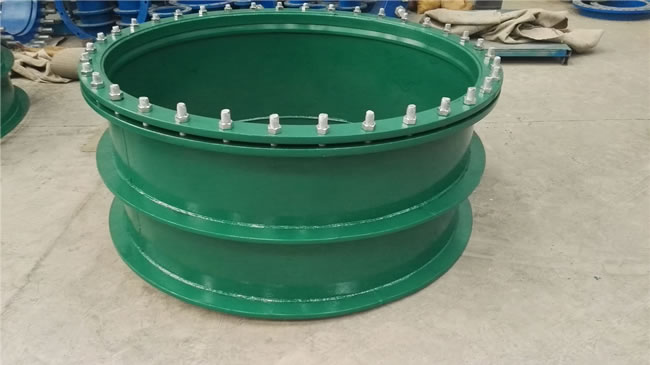
Singapore Chemical Enterprises Pipeline Material and Accessories Selection Standards
Singapore, a vibrant city-state in Southeast Asia, is renowned for its diverse culture, advanced infrastructure, and robust economy. As the political and economic center of Singapore, the city of Singapore houses the seat of government, including the Parliament and various ministries, which play pivotal roles in shaping the nation's policies and direction. The city is also home to the central business district, where major financial institutions, multinational corporations, and innovative startups converge, driving the country's economic growth and prosperity. With its strategic location, excellent connectivity, and pro-business environment, Singapore has established itself as a leading global financial center and a gateway to the dynamic markets of Asia.

# Pipeline Planning and Layout in Singapore's Emerging Chemical Industrial Park
In the emerging chemical industrial park of Singapore, pipeline planning and layout are crucial for safe and efficient operations. The pipeline network is meticulously designed to meet the diverse needs of the chemical enterprises within the park.
Firstly, a comprehensive analysis of the types and volumes of chemicals handled is conducted. This enables the determination of appropriate pipe sizes and materials to ensure safe transportation. Corrosion-resistant materials like stainless steel are often used for highly corrosive substances.
The layout follows a systematic approach. Main distribution pipelines run along designated routes, connecting to branch lines that serve individual plants. This hierarchical structure facilitates easy maintenance and reduces the risk of cross-contamination. Safety considerations are paramount. Emergency shut-off valves and pressure relief devices are strategically installed at key points. Regular inspection and maintenance plans are in place to detect and address any potential issues promptly.
Moreover, advanced monitoring systems are integrated into the pipeline network. These systems can track parameters such as pressure, temperature, and flow rate in real-time, allowing for early detection of leaks or abnormal conditions. By optimizing the pipeline planning and layout, the chemical industrial park in Singapore aims to achieve sustainable development while ensuring the highest level of safety and operational efficiency.

# Selection Criteria for Materials and Accessories of Conveying Pipes in Singapore Chemical Companies
## 1. Material Selection Criteria
### Corrosion Resistance
- **Chemical Compatibility**: The material must be compatible with the chemicals being transported. For example, when handling sulfuric acid, materials like stainless steel (e.g., 316L) or PTFE-lined pipes are suitable due to their excellent resistance to acid corrosion.
- **Corrosion Rate**: Consider the expected service life and the allowable corrosion rate. Low-carbon steel may require additional coatings or liners to prevent rapid corrosion in certain chemical environments.
### Mechanical Properties
- **Strength and Pressure Rating**: The material should have sufficient strength to withstand the internal pressure of the fluid being conveyed. High-pressure applications may require materials like carbon steel or high-strength alloys.
- **Flexibility and Durability**: For applications involving temperature variations or vibrations, flexible materials such as PVC or rubber-lined pipes can be beneficial. However, they need to meet the required pressure and temperature ratings.
### Temperature Resistance
- **High-Temperature Tolerance**: In processes involving high temperatures, materials like stainless steel or nickel-based alloys are preferred due to their ability to maintain mechanical properties at elevated temperatures.
- **Low-Temperature Performance**: For cryogenic applications, materials with good low-temperature toughness, such as austenitic stainless steels, are necessary to prevent brittle failure.
## 2. Accessory Selection Criteria
### Valves
- **Type Selection**: Different types of valves (e.g., ball valves, gate valves, check valves) are chosen based on the specific application requirements. Ball valves are commonly used for their quick opening and closing action and tight sealing capability.
- **Material Compatibility**: The valve body and internal components should be made of materials that are compatible with the conveyed fluid. For corrosive fluids, stainless steel or special alloys may be required.
### Fittings
- **Connection Type**: Common fitting types include threaded, flanged, and welded connections. The choice depends on factors such as ease of installation, maintenance requirements, and pressure rating. Welded fittings provide a more secure connection for high-pressure applications.
- **Sealing Performance**: Ensure that the fittings have reliable sealing mechanisms to prevent leaks. Gaskets or sealants may be used to enhance the sealing performance.
### Flanges
- **Flange Type**: There are various flange types, such as slip-on, weld neck, and socket weld flanges. The selection is based on the pipe size, pressure class, and installation requirements. Weld neck flanges are often used for high-pressure applications due to their better stress distribution.
- **Material and Standards**: Flanges should be made of materials that match the pipe material and conform to relevant standards, such as ASME B16.5 in the United States or EN 1092 in Europe.
In summary, the selection of materials and accessories for conveying pipes in Singapore chemical companies needs to consider multiple factors, including corrosion resistance, mechanical properties, temperature resistance, and compatibility with the conveyed fluid. Adhering to appropriate selection criteria ensures the safe and efficient operation of the pipeline system.
In summary, the demand for flexible waterproof sleeves in the field of pipeline construction by chemical companies in Singapore is increasing. Flexible waterproof sleeves play a role in connecting compensating and protecting within pipeline systems. The correct installation and use of expansion joints are of great significance for ensuring the normal operation of pipeline systems and extending the service life of pipelines. Therefore, chemical companies in Singapore should pay more attention to flexible waterproof sleeves, improve the quality of pipeline construction, and contribute to the sustained development of Singapore's economy. Do not forget the hardships of yesterday, live up to today's responsibilities, and do not let down tomorrow's dreams! ZhongYuan wishes customers of flexible waterproof sleeves in Singapore: Cooperation allows us to grow together. Thank all partners. In the days to come, may our path of cooperation become wider and wider. We wish everyone safety, happiness and joy.
Gongyi City, Henan Province, China Allsites Email: 18539447368@163.com
